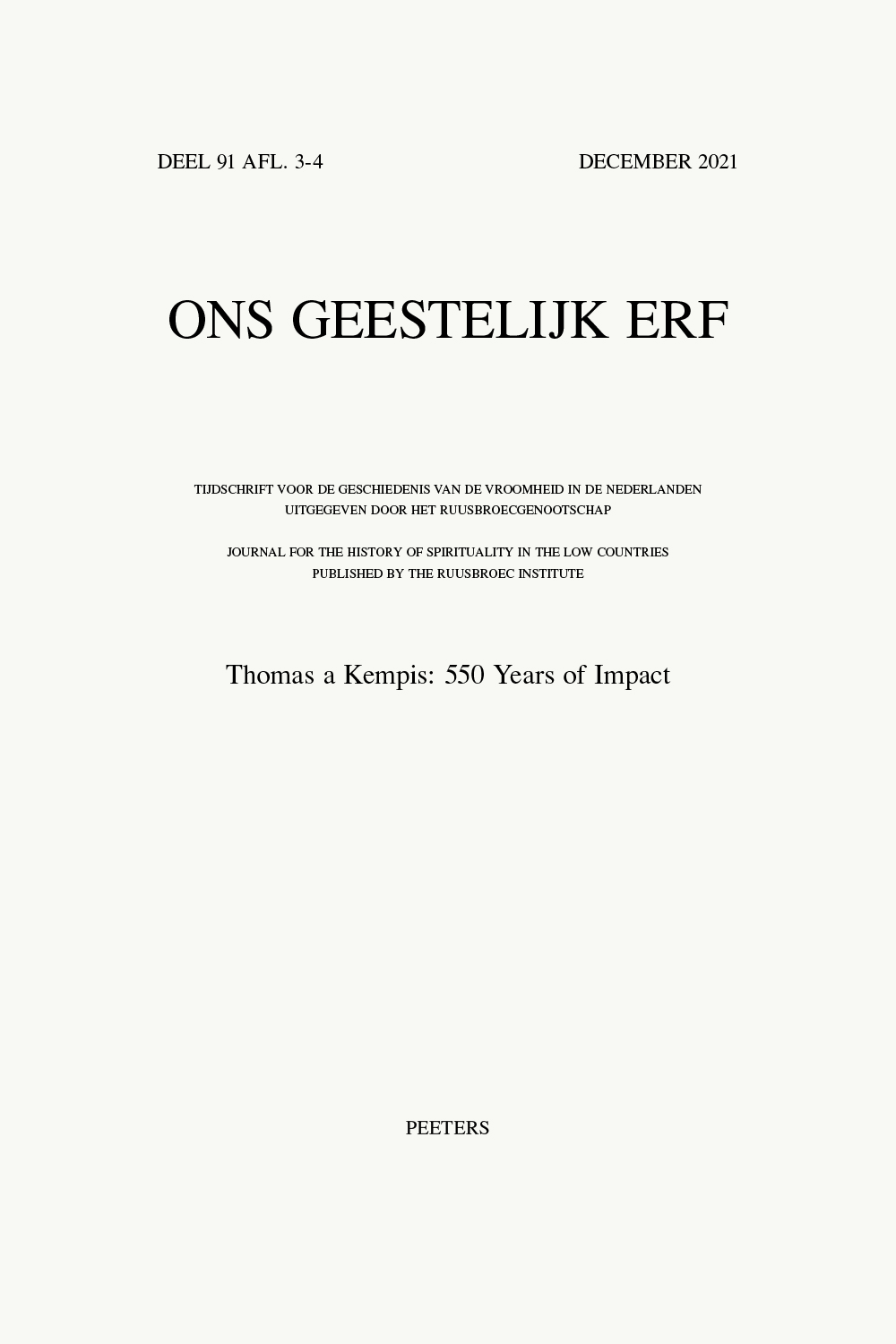 previous article in this issue previous article in this issue | next article in this issue  |

Preview first page |
Document Details : Title: Dat boec des nuwen lovesancs Subtitle: Koorgebed bij tertiarissen? Author(s): GOUDRIAAN, Koen Journal: Ons Geestelijk Erf Volume: 92 Issue: 3-4 Date: 2022 Pages: 279-299 DOI: 10.2143/OGE.92.3.3291679 Abstract : The 25th of the Jhesus collacien contains the metaphor of a ‘boec des nuwen lovesancs’, a book of the new song of praise. One of the details in its description reveals that it is provided with musical notes, which implies that it must be interpreted as a choirbook. The same chapter also stresses the fact that this book specifically belongs to the sisters of the Third Order of St Francis (Tertiaries). This is not at all self-evident, because Tertiaries are supposed to have been lay sisters who acquitted themselves of their task of saying the hours by reciting them in simple and reduced manners such as saying a series of Paternosters. With this book of the new song of praise as point of departure a tour d’horizon is made along developments within the Third Order in the historical Low Countries which point to a trend of appropriating the full Divine Office. Traces of this tendency could be perceived in the first place within source material concerning the Chapter of Utrecht, to which most Tertiary convents in the northern Netherlands belong. Here it may be connected to the evolution towards full monasticism which has been studied in detail over the last decades, and which manifests itself in the gradual adoption of the three monastic vows as well as of cloistered life (clausura). The fact that one of the copies of the Jhesus collacien originates from the Tertiary convent of Bree (in the north-eastern part of present-day Belgium) offered the opportunity to extend the analysis to the historical Southern Netherlands. Here the gradual evolution of an elite group of Tertiaries mastering the full office could be traced all the way from the privilege granted a group of Flemish convents in 1413 to the foundation in the early seventeenth century of the Congregation of Limburg of the Penitents-Recollectines. These developments may be inscribed for a large part in the unfolding of observant Franciscanism, which competed with the Devotio moderna in the spiritual direction of the Tertiaries. In conclusion, the choirbook hinted at in the Jhesus collacien, fits in clearly within a tendency towards monasticism among the Tertiaries. In reverse, this finding strengthens the observation made by Thom Mertens of the predominantly monastic character of the spiritual model offered by the Jhesus collacien. |
|


